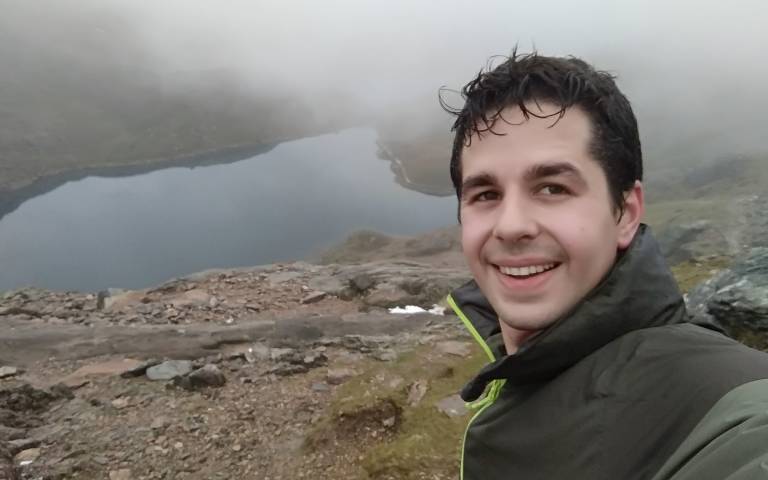Spotlight on Economics and Policy of Energy and the Environment MSc graduate Vassilis Gkoumas
2 June 2020
Vassilis Gkoumas graduated from UCL’s Economics and Policy of Energy and the Environment (EPEE) MSc in 2019, here he shares his experience

The Economics and Policy of Energy and the Environment (EPEE) programme is a joint MSc with the UCL Energy Institute and Institute for Sustainable Resources. Before starting the EPEE MSc Vassilis worked in the shipping industry, at Envolve Entrepreneurship in New York and at the U.S. Commercial Agency.
Vassilis said that he initially saw the MSc as a way for him to take his career in a new direction:
“EPEE was essential in redefining my career path. Initially I perceived EPEE as a stepping stone that would help me get into the energy sector.”
However, when he began studying on the programme he became involved with two research projects which encouraged him to pursue further education after the MSc. The first research project was led by ISR director Prof Paul Ekins, which studied the effects of a tax on plastics on the plastic supply chain. During his dissertation Vassilis worked with Paul Drummond and the UK Department for Business, Energy and Industrial Strategy, on a project trying to estimate how industrial operators in the UK perceived different aspects of carbon pricing schemes. These two projects encouraged Vassilis to apply for a PhD.
Vassilis is now doing a PhD at the Land Economy Department at the University of Cambridge where he is currently researching ways in which people can be incentivised to protect the natural environment. He is also a PhD researcher at the Cambridge Centre for Environment, Energy and Natural Resource Governance. He says that his time on the EPEE MSc is helping him with his current research:
Through EPEE I learnt many aspects of environmental policy and economics that I am currently applying in my research. EPEE is quite a broad course and it covers a wide range of topics, which helped me get an overview of what is out there and then allowed me to research further the topics that I was most interested in.”
For future EPEE students looking to get the most out of their MSc, Vassilis offers the following advice:
“First, I would advise future EPEE students to interact with their peers as much as possible. During the EPEE program, together with four friends we set up a study group which aimed to cover the extensive list of readings together. This process of learning helped me consolidate more knowledge than any other revision method I have used in the past and it was an enjoyable way of learning. Second, UCL is a massive university and it is located in a city that is a host to many other incredible institutions all of which offer numerous opportunities for students. I would recommend to future EPEE students that they attend as many talks, lectures, seminars and meetups as the can fit in their schedule. Such events offer an opportunity to learn applied knowledge and to expand your network beyond your cohort.”
We’d like to thank Vassilis for sharing his experience of studying Economics and Policy of Energy and the Environment MSc at The Bartlett UCL and wish him all the best in his PhD.
 Close
Close

